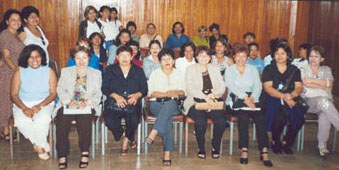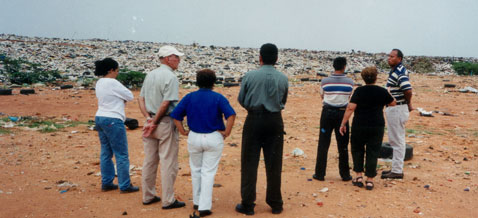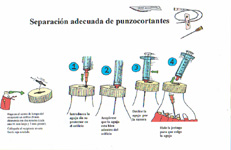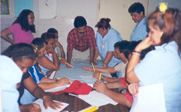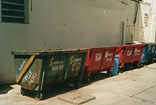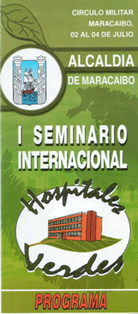|
In 2001, in the framework of the Green Health Care Programme, in Hospital Central Dr. Urquinaona, Maracaibo, Venezuela, the pilot project Hospitales Verdes was established. See photo album pilot hospital. |
|
|
The hospital was selected because it is located in an ecological vulnerable area, namely on a 14,000 km² fresh water lake. It also serves as a medical school for medicine and nursing. Moreover, the hospital is located far away from central government, which means the hospital’s environmental management gives a better picture of the average state of affairs in the rest of the country. See photo album Lake Maracaibo. |
|
This hospital has been serving the poorest members of the population for 400 years. These people come from far away to “their” hospital. The picture shows how a relative sleeps under the bed of the patient. See photo album patient service. |
|
|
During the first phase of the project the human factor in the pilot hospital was given central importance. Moreover, an integrated approach was applied and cross sectoral cooperation achieved. For the personnel of the local institutions, community committees, government agencies and the media, general informative presentations were held about environment and health risks of dangerous materials and inadequate waste management by the health sector. See photo album meetings.
|
|
|
|
|
after which priorities were established...
|
The confrontation with the reality of the hospital’s inadequate waste policy motivated the different department heads to participate in the project. Staff was stimulated to attend “awareness meetings” and contributed to an internal campaign to separate dangerous sharp waste (such as used injection needles) from other waste. Within a month of launching the special campaign, waste containers and floors were free of injection needles. Through cooperation and creativity an economical responsible method of sharps separating was developed and implemented. See photo album sharps. |
|
|
With the groups of the cleaning department all the dangers of the hospital were mapped and with much interest presented to the remaining staff. As a result of the large number of dangers found, the awareness has increased that daily routines bring many dangers. |
|
|
The hospital management realized that the waste problem can not be solved without the cooperation of the local government and reached a consultation with the municipal sanitary service.
|
|
|
The hospital management has decided to establish a special space for temporary storage of the separated waste and for this purpose purchased various color trash containers. |
|
|
The management of the hospital has abandoned the planned incinerator. Since then the hospital has been searching for waste separation and recycling systems. The municipal commission, searching for a solution for the daily 2,000 tons of household waste, stopped the invitation to tender for a special pyrolysis installation after realizing that these high-tech incinerators also increase the environment problem rather than solve.
|
|
|
Around the planned visit of some Dutch environment officers to Maracaibo, the municipal environment service and the hospital organized together a conference. All involved local, regional and national parties were invited for this First International Green Health Care Conference and appointments were made for a regional management of hazardous hospital waste.
|
|


